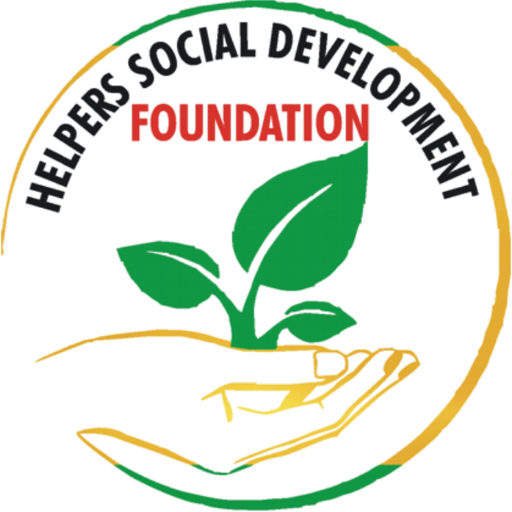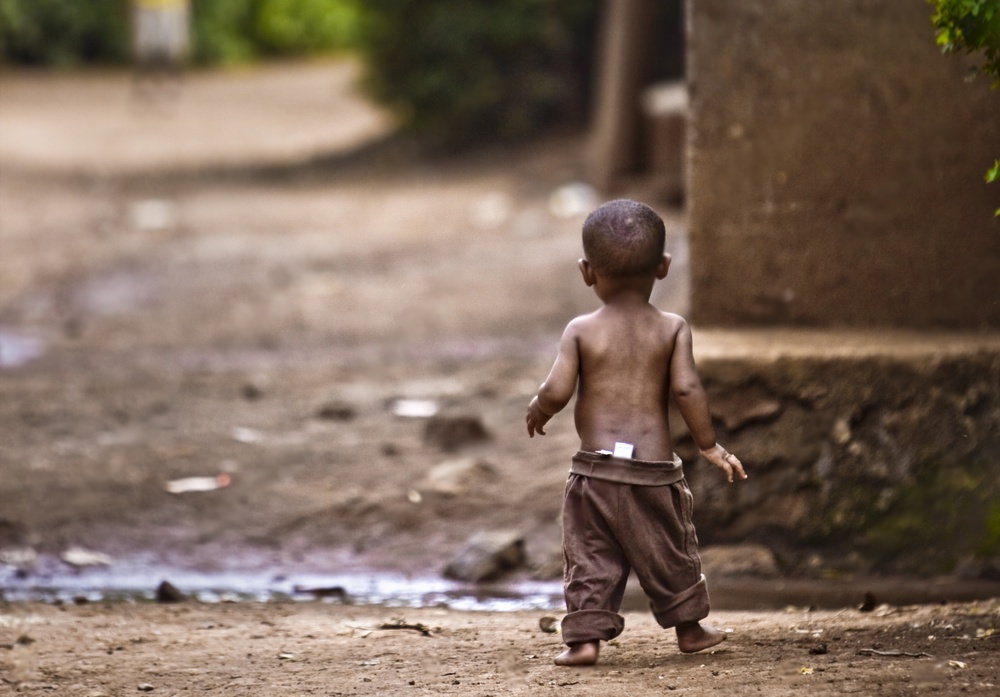This article highlighted some of the steps on how to eradicate poverty in Nigeria. Poverty is the inability of people or families to get enough resources to satisfy a minimal level of life that is deemed acceptable by society. Lack of a typical or socially acceptable level of money or other goods is the condition of being in this situation. It is said to be when people lack the means to meet their basic needs. In Nigeria, the wealth of the nation is controlled by few individuals and leaving millions of Nigerians in poverty.
Make charitable donations online
Donate Now
Poverty has reduced people’s quality of life to merely surviving daily, rather than living life to the fullest. It makes existence intolerable and has the power to end all life. For instance, the fact that poverty does not prevent parents from having children might make childrearing situations so miserable that the lives of children born under such circumstances are at risk. Because of this, infant mortality rates are particularly high in underdeveloped nations and localities across the world.
According to the World Bank’s Nigeria economic report, which was published in July 2019, Nigeria has one of the highest average economic growth rates in the world at 7.4%. The gross domestic product (GDP) growth rate fell to 2.7% in 2015 as a result of negative production shocks and the decline in oil prices from 2014 to 2016. 2016 the GDP shrank by 1.6% during its first recession in 25 years. Nationally, 89 million Nigerians (43 percent) live below the poverty line, while 53 million (25 percent) are considered vulnerable. Numerous people struggle with a lack of financial resources, severe information poverty, unemployment, information accessibility, technology assets, and other particularly debilitating circumstances like poverty.
 The degree of poverty continues to be intolerable for a nation with enormous riches, a sizable population to sustain trade, a highly developed economy, and an abundance of natural resources like oil. Due to a lack of knowledge about the enormous informal sector of the economy, which is believed to be 60% larger than the present GDP numbers, poverty may have been overstated. As of 2018, poverty is slowly increasing as a result of population expansion outpacing economic growth. Nearly half of the population, and unemployment peaked at 23.1%, live below the international poverty line ($2 per day).
The degree of poverty continues to be intolerable for a nation with enormous riches, a sizable population to sustain trade, a highly developed economy, and an abundance of natural resources like oil. Due to a lack of knowledge about the enormous informal sector of the economy, which is believed to be 60% larger than the present GDP numbers, poverty may have been overstated. As of 2018, poverty is slowly increasing as a result of population expansion outpacing economic growth. Nearly half of the population, and unemployment peaked at 23.1%, live below the international poverty line ($2 per day).
However, these initiatives have largely ignored the three causes of this enduring poverty—income disparity, interethnic conflict, and political instability with corruption. The economy has suffered greatly because of COVID-19, with food prices rising and markets being disrupted by rising costs and declining buying power.
STEPS TO END POVERTY IN NIGERIA
- An Increase in Literacy Rates and Skill Development: According to UNICEF, Nigeria has one of the world’s worst rates of out-of-school children, with the situation looking to be considerably worse in Northern Nigeria. Data from October 2018 show that Nigeria has the greatest proportion of out-of-school children. Poverty is a constant effect of this lack of human capital development. An effective long-term solution to poverty in Nigeria can be found in high-quality education. Helpers Social Development Organization, a non-profit organization in Enugu State, has helped to increase literacy by opening a school that provides free education for children in the nursery and primary grades and by sponsoring their secondary education. This has been shown to increase economic efficiency by increasing the value and effectiveness of the workforce, helping people escape poverty.
- Economic Diversification: Another significant factor contributing to Nigeria’s growing poverty levels is economic instability brought on by an overreliance on oil money. Therefore, it is essential to diversify economic activity to provide opportunities for Nigerians while preserving economic stability. Diversifying Nigeria’s economy and boosting value addition in the agricultural sector can both contribute to the elimination of poverty. 70% of the workforce is presently employed in agriculture, but by expanding it, the government will be able to offer even more specialized professions, enabling people to move up the employment ladder.
- Embracing Technology and Economic Opportunity Expansion: Nigeria’s economic output and population prospects must be enhanced if poverty is to be eradicated there. For this to happen, it will be necessary to advance technological innovation while also increasing financial access and opportunities for women and young people in rural areas.
To do this, the Nigerian government must fund job-creation initiatives like rehabilitating infrastructure and other extensive investments that bolster local economies, generate jobs, and rejuvenate neighborhoods. Similar to how it has been demonstrated in other countries, the government may support increased employment creation by fostering entrepreneurial ecosystems and encouraging private-sector cooperation through incentives and social impact bonds.
Despite its limitations, access to microfinance has also been proven to reduce poverty globally. It is important to integrate individuals into the financial system so that governments can better organize and integrate services for the poorest of the poor, even while there are compelling reasons to use grants and other types of social assistance to support the poor.
Nigeria’s financial inclusion is rising, although there is still little financial inclusion in the nation’s rural, poor areas. Government regulatory support for digital and mobile-based financial products as well as the adoption of blockchain technology may both increase financial inclusion.
- Healthcare Investment: People are being driven into extreme poverty every year because of having to pay for health issues, as Nigeria continues to deal with several damaging health indicators. To reduce poverty, we must invest in people’s health and well-being, especially the well-being of our young people. As a result, the Helper Social Development Foundation has built restrooms in public schools to enhance students’ well-being. It is crucial to remember that increased healthcare spending is linked to both a rise in the economy and a decrease in poverty.
- Females’ Education and Women’s Empowerment: The approximate 10 million youngsters that are not in school in Nigeria are mostly female. It has been shown that empowering women and educating girls has a favorable impact on the economy and future generations. to eradicate poverty for both present and future generations Since 2016, the Helpers Social Development Foundation has sponsored girls’ education at the basic and secondary school levels and launched an initiative to combat child marriage and child sexual abuse in several rural areas. Gender equality raises household income and improves the prospects and well-being of children.
- Fight Against Corruption: Because of Nigeria’s deeply ingrained corruption and the lack of sanctions for corrupt public officials, funds meant for development projects have been diverted, which has resulted in subpar infrastructure development, poor social welfare, and poverty.
Fighting corruption is an important step in helping the country end its growing poverty rates. To do this, a thorough anti-corruption campaign and strict financial control are needed. Fighting corruption has a direct influence on poverty reduction, as opposed to education, which decreases poverty gradually.
5. Income Redistribution: This simply implies that low- and middle-income employees will experience increases in their pay and benefits while high-income earners (particularly the political elite) will suffer decreases in their pay and benefits. Raising demand will boost overall production, creating more employment and reducing poverty.
6. Invest in Infrastructure: One way to assist the nation in creating a more connected economy, which can help to reduce poverty, is to invest in infrastructure. It will boost economic activity and give more Nigerians greater power to provide dependable power, a rail network, decent roads, pipe-borne water, and intervention in mass housing projects.
CONCLUSION
The humiliating contradiction of poverty amid abundance in Nigeria points to the urgent need for a focused effort to reduce and eventually eradicate poverty. A shared poverty reduction strategy that can be adopted by the federal government, state governments, local governments, NGOs, and the global donor community is therefore required.
In addition to a strong political commitment, projects, and programs aiming at eliminating poverty must also be depoliticized. Very importantly, it is necessary to implement programs and efforts to reduce poverty; as a result, consider donating to the Helpers Social Development Foundation or working with them to launch a project to eradicate Nigeria’s fundamental causes of poverty. To make a dent in poverty, we must have rapid, equitable economic growth, controlled population increase, competent economic management, and great governance.
The Helper’s Social Development Foundation is still one of the top nonprofit groups fighting poverty, which is a final but crucial point. Support Helpers Social Development Foundation’s mission in helping poor families with your donations. National development plans must contain objectives for eliminating poverty, and the strategies and actions must be included in the country’s broader development/policy management framework.
Make a donation

